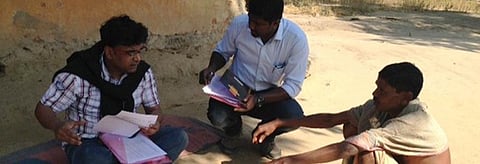

The death toll from what is being feared to be Acute Encephalitis Syndrome (AES) has reached 43 according to the Bihar government, while unofficial sources put it at 60.
Till the evening of June 12, 36 children had died in the government-owned Sri Krishna Medical College and Hospital (SKMCH) in Muzaffarpur while seven had died in the privately owned Kejriwal hospital, according to regional additional health director Ashok Kumar Singh.
Till date, 143 cases of AES have been reported from 11 districts of Bihar including Muzaffarpur, Vaishali, Samastipur, Sheohar, Sitamarhi, East Champaran, Patna, Gaya, Jehanabad, Bhojpur and Aurangabad.
Meanwhile, a senior paediatrician who visited Bihar’s Muzaffarpur on June 12 as part of a central team, has stated that the spate of recent child deaths in the area was a complex issue. He has also said there could not be any certainty about the causes of the deaths.
“AES is not a disease. It is a system in which there may be more than one disease,” Arun Kumar Sinha, national advisor of the Rashtriya Bal Swasthya Karyakaram, Union Ministry of Health and Family Welfare, told the media.
Sinha also said the child deaths were not caused just by a loss of sugar in blood and the shortage of sodium.
“It is a complex issue related to malnutrition, hot weather and high humidity. The investigation is underway. Nothing can be said with surety about the cause of deaths,” said Sinha.
Union Minister of State for Health Ashwani Kumar Choubey, who is from Bihar, will be visiting the affected area on June 13. He will meet with doctors, health officials and the parents of children battling for their lives during his visit.
Things to change
Ashok Kumar Singh, however claimed that the situation was improving. “A light rains on June 12 helped and heavy rains soon will control the disease as hot weather with high humidity are increasing its effects,” he said.
Others support Singh’s view. Rajiv Kumar of Kejriwal hospital said it was a fact that monsoon rains would help to check and control the disease because the scorching heat and humidity had helped to spread it in the first place.
“In the last few years, we have closely watched that heat wave conditions help the virus to spread and intensify the disease while monsoon rains are the best antidote for it," a health official told Down To Earth.
Union Minister of Health and Family Welfare Harsh Vardhan’s scheduled visit to Muzaffarpur on June 13 was cancelled at the last moment.
SKMCH superintendent Sunil Kumar Shahi said the hospital’s team of doctors have been working day and night to provide proper treatment to save children’s lives. “We are in alert mode and are taking no chances,” he said.
The state health department had already issued an advisory to people to take care of their children during daylight hours and not allow them to play under the open sky.